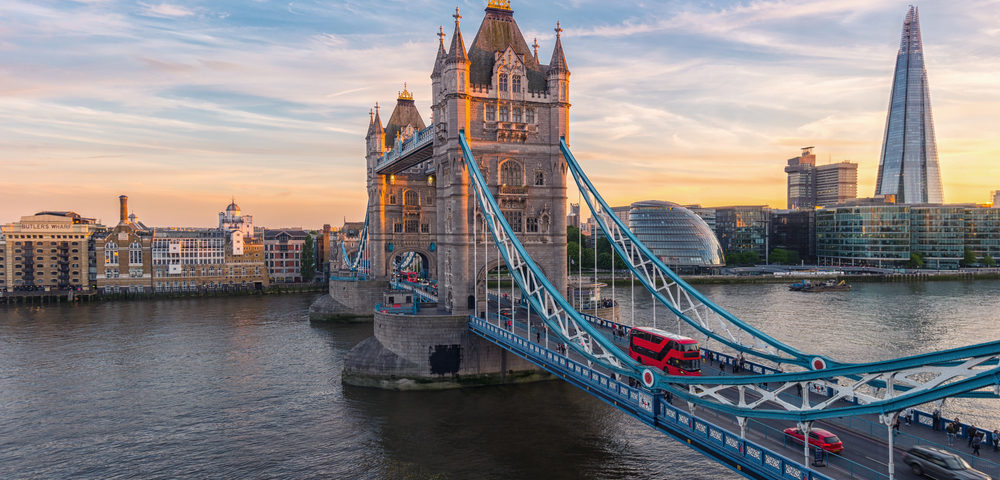Representatives from all sectors of travel and tourism took part in a virtual tourism investment summit to discuss ways to boost business recovery and restore traveller confidence.
Organised by International Tourism and Investment Conference (ITIC), in partnership with WTM Virtual, the ITIC Investment Summit – called Invest, Finance and Rebuild the Travel and Tourism Industry – was a coming together of finance experts, analysts, tourism ministers, aviation bodies and hoteliers, among other sectors.
Professor Ian Goldin, Professor of Globalisation and Development at Oxford University, described the current situation as “the most devastating period in economic history”.
He said globally the world would see a decline of -6% this year, with the UK at -10%, France and Spain at -11%-12% and the US at -7%, but he expected to see a rebound next year, even without the recent news that a possible vaccine is on its way. By 2025, most developed countries will be back to pre-COVID economy levels.
However, he warned: “Developing countries are suffering to a much greater extent and are suffering from the economic consequences of travel and tourism being destroyed and are unable to support their economies.”
In a stark warning, he said: “Many millions more people will die of hunger than will die of COVID-19.
“Far from rich countries coming to the support of the developing countries, aid will go down. The UK is looking to give 10% less aid, even though countries need it more. The economic impact on poor countries is much greater.
“We will see a strong revival in travel and tourism. But this is going to be a grim year.”
Dr Taleb Rifai, Chairman of ITIC & former Secretary-General UNWTO said: “This crisis has taught us that we have to travel very, very responsibly. The idea of overtourism, which was so prevalent before will disappear, I’m sure. Governments were so preoccupied with growth and business they didn’t listen to this. Travel is going to come back very strongly, but it will come back in a new way.”
Among speakers who have ‘pivoted’ their business, was Sir Tim Clark, President of the airline Emirates, who explained how the carrier is offering Covid insurance for passengers, which will cover their medical expenses, as well as changing emphasis from flying passengers to flying medical equipment and PPE around the globe and is looking at flying the vaccine to different parts of the world when it is approved for global use.
Meanwhile, Dubai Airports CEO, Paul Griffiths, said replacing retail units with cinemas and bowling alleys could be a way to claw back revenue that he fears could be lost forever as more people move to online shopping after COVID-19.
He’s also considering an in-flight digital catalogue system where passengers browse for products at their leisure, order them, then pick them up on arrival at the airport.
He said: “A sinister long-term effect of Covid is that on-line retail has done really well. Airlines and airports need to think of a new model.
“It takes 24 minutes to consider a duty free purchase. Let’s use that eight to 10-hour flight before people arrive at the airport to select from a digital catalogue, then pick their purchases up when they land.”
He told airlines: “You provide us with the customers and you can land for free.”
Speaking from a global hotel group’s perspective, Simon Vincent, President Hilton, EMEA, said leisure business started to return in Q3 adding: “There is clearly a lot of pent-up demand, but travellers need confidence.”
Delegates were in agreement that testing is crucial to kickstarting confidence among flyers, business travellers and leisure visitors.
Another concern, expressed by Nicolas Mayer, Global Tourism Leader at PWC, is the huge loss of talent in the global travel industry.
Hilton’s Simon Vincent said trying keep staff was a major challenge: “We have 400,000+ team members on a global basis. We are trying to hold on to them. They have been doing an amazing job in difficult circumstances,” he said.
And Dale Keller, CEO, Board of Airline Representatives UK warned talk of a recovery was premature: “We talk about a recovery. We haven’t even got through the restart yet,” he said.
In a show of how different regions can work together for a united purpose, figureheads from Commonwealth countries and representatives of Commonwealth organisations discussed how investment in travel and tourism can drive growth and cooperation between the countries.
They discussed how the Commonwealth’s 54 countries from five continents could regroup to be branded as one destination, harnessing their cultural diversity and values to make this ‘region’ the most exciting tourism zone in the world.
Meanwhile, in a session entitled Investing in Africa session, delegates discussed how Rwanda is positioning itself as a sound and well-regulated International Financial Centre of choice in Africa and how it plans to become the main conduit to boost and attract investment in the continent, which will help to restore investment in the travel and tourism sector.
Other highlights included:
- Business travel will stay at 10-20% of previous levels for some time and it will be done more strategically – for final closure of deals, for example, according to Prof Ian Goldin.
- 60% of Hilton’s network (Europe, middle East and Africa) closed at beginning of pandemic, now it’s 85% open.
- Saudi Arabia wants tourism to generate 10% of GDP contribution, creating 1 million jobs and attracting 100 million visitors to the kingdom and aims to be one of the top-five destinations globally by 2030.
- 54% of people employed in tourism are women, according to Catheryn Khoo-Latimore, Associate Professor at Griffin University in Australia


